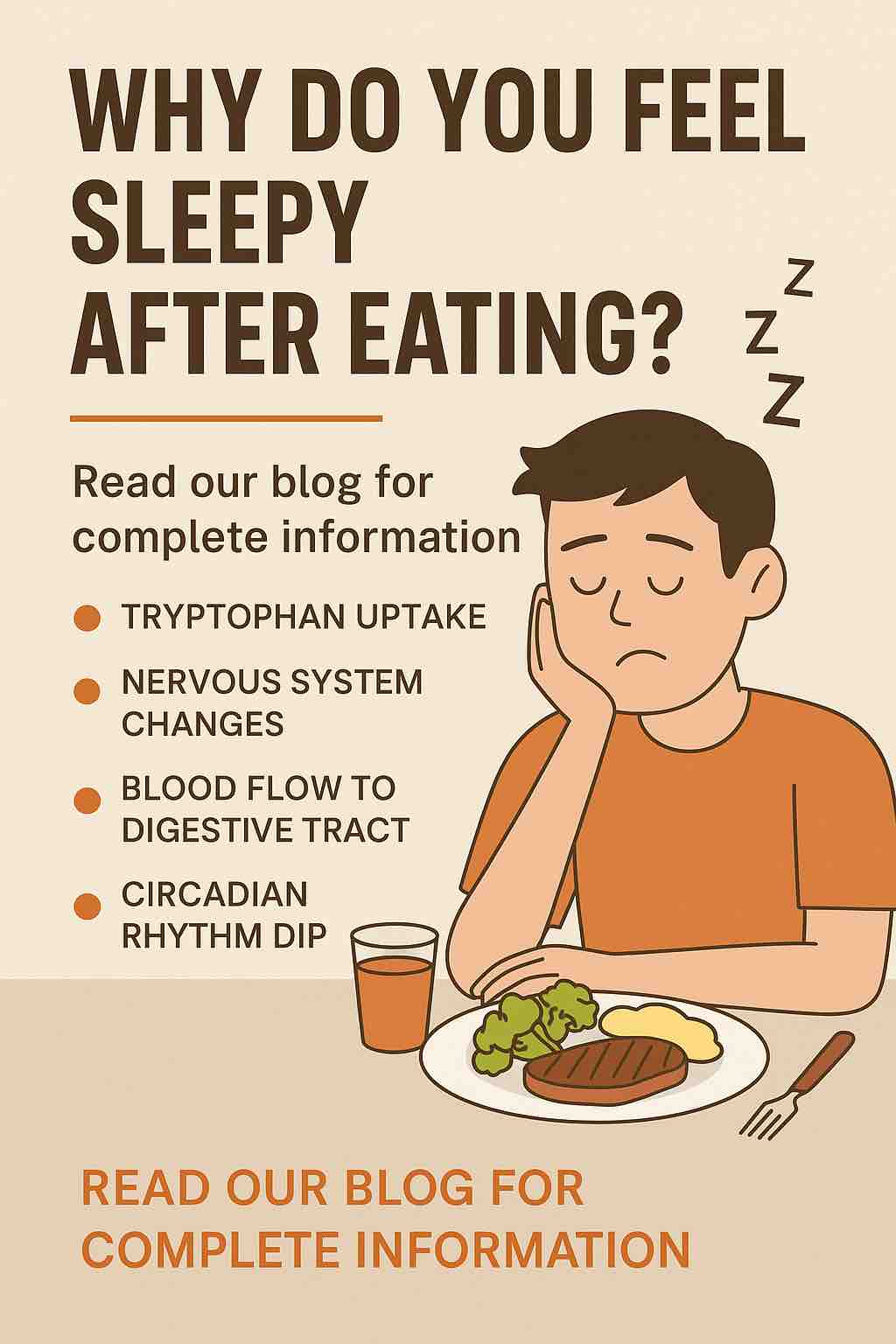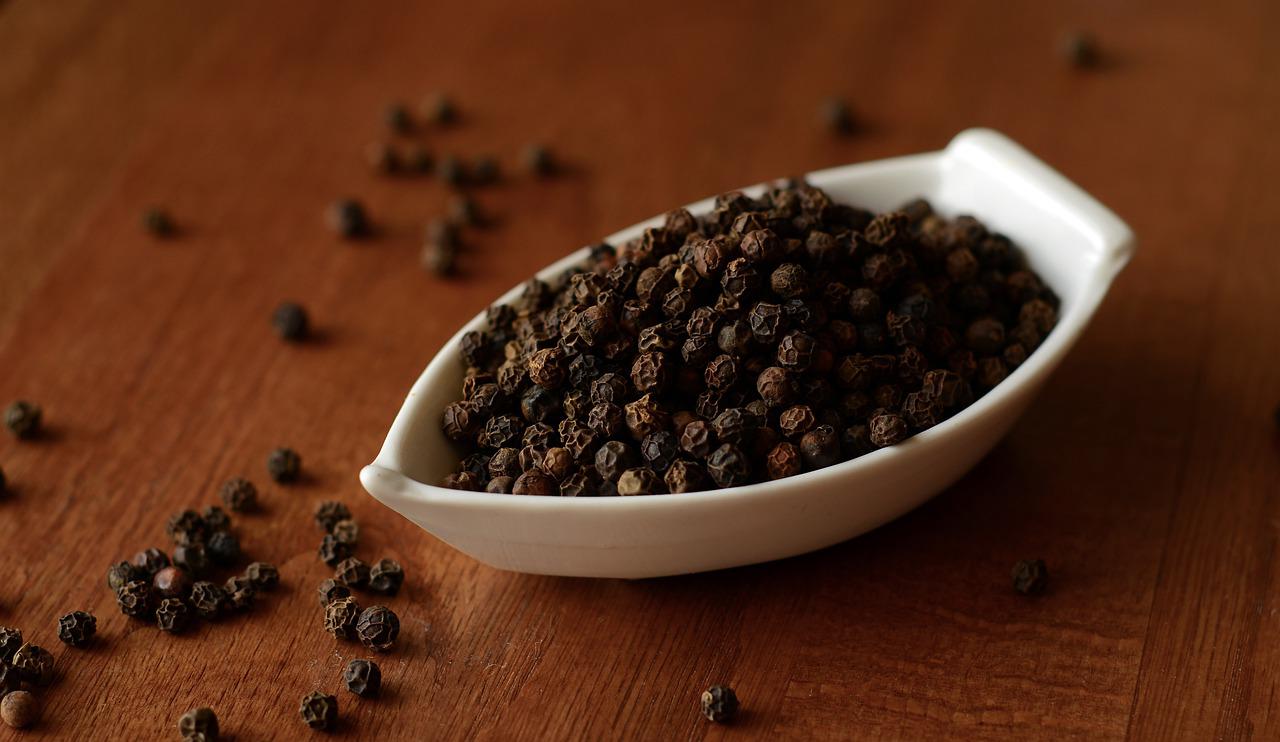
We’ve all been there—polishing off a big lunch only to feel like someone pulled the plug on your energy levels. Eyelids get heavy, focus wavers, and your productivity dives headfirst into a carb-induced abyss. That overwhelming sleepiness you feel after a meal? That’s called a food coma, or more formally, postprandial somnolence.
But what’s really happening in your body that causes this slump in alertness? Is it just a sign you ate too much, or is there something deeper at play? And more importantly, can you avoid it without giving up your favorite meals?
Let’s dive deep into the science, consequences, and smart strategies to beat the post-meal crash.
🍽️ What Is a Food Coma?
A food coma is the drowsiness or fatigue that follows a substantial meal. While it might seem harmless (even expected) after a holiday feast, frequent or intense post-meal fatigue can interfere with your day, work, mood, and long-term health.
Biologically, postprandial somnolence is a complex physiological response involving digestion, hormone regulation, neural signaling, and even your circadian rhythm. It’s not just about eating too much—it’s about what, when, and how you eat.
🧪 The Science: Why Do We Get Sleepy After Eating?
1. Your Brain on Tryptophan
Certain foods—especially those rich in protein—contain the amino acid tryptophan. After a meal, insulin surges (particularly after carbohydrate intake) help shuttle most amino acids into muscle tissue—except tryptophan. This increases its relative concentration in the bloodstream.
Tryptophan then crosses the blood-brain barrier, where it’s converted into serotonin, a neurotransmitter that promotes calmness and well-being, and then into melatonin, the hormone responsible for sleep.
➡️ High-carb or protein-heavy meals? You may be biochemically nudging your brain toward nap mode.
2. Your Nervous System Dials Down
After eating, your parasympathetic nervous system takes the wheel—this is the “rest and digest” system. It reallocates resources toward digestion, reduces your heart rate and respiratory activity, and promotes a relaxed state.
➡️ Think of your body shifting into low-power mode to process the food.
3. Blood Flow Shift
Digestion is a resource-intensive process. To optimize it, the body increases blood flow to the gastrointestinal (GI) tract, which may result in reduced blood flow to the brain and muscles.
➡️ Less blood and oxygen to the brain = foggier thinking and fatigue.
4. The Post-Lunch Dip Is Real
Your circadian rhythm—the body’s internal clock—naturally dips in alertness in the early afternoon (typically between 1:00 PM and 3:00 PM). This lull coinciding with a large meal amplifies the effect, making it harder to resist a snooze.
➡️ Even without food, your body might be ready for a break around mid-afternoon.
5. Meal Composition & Size
- High-fat meals delay gastric emptying and prolong digestion → longer periods of parasympathetic dominance.
- High-sugar meals cause rapid insulin and glucose fluctuations → quick energy spikes followed by crashes.
- Large meal volume stretches the stomach, triggering vagal nerve responses that promote relaxation and drowsiness.
➡️ You’re not just what you eat—you’re how much and when you eat it too.
⚠️ The Hidden Consequences of Frequent Food Comas
1. Cognitive Impairment
- Reduced alertness, slower response times.
- Impaired short-term memory and decision-making ability.
- Poor productivity post-lunch—often referred to as the “afternoon slump.”
2. Workplace Performance
- Studies show that productivity and engagement decline sharply in the hours following a heavy meal, particularly in desk jobs.
3. Long-Term Health Concerns
If you regularly eat in a way that induces strong food comas, it may signal underlying issues:
- Insulin resistance or blood sugar dysregulation.
- Metabolic syndrome and elevated risk of Type 2 diabetes.
- Obesity, as frequent large meals increase overall caloric intake and reduce physical activity.
4. Sleep-Wake Cycle Disruption
- Napping after meals, especially late in the day, can interfere with nighttime sleep, creating a vicious cycle of fatigue and poor sleep quality.
🛡️ Countermeasures: How to Avoid the Post-Meal Crash
You don’t have to choose between staying awake and enjoying your food. The key lies in intelligent eating habits, timing, and light activity.
✅ 1. Eat Smart: Balance Is Everything
- Opt for low-glycemic carbs (e.g., oats, quinoa, legumes) that release energy slowly.
- Combine lean protein, fiber, and healthy fats to prevent sugar spikes and promote sustained energy.
- Avoid heavy, greasy, or sugar-laden meals, especially during work hours.
✅ 2. Portion Control
- Practice mindful eating. Use smaller plates. Chew slowly.
- If you feel 70–80% full, that’s often exactly the right stopping point.
- Split large meals or save leftovers instead of finishing them out of obligation.
✅ 3. Move a Little
- A 10–15 minute brisk walk after a meal can aid digestion, lower blood sugar, and enhance alertness.
- Even gentle movement (stretching, light chores, walking meetings) helps.
✅ 4. Time Your Meals Strategically
- Avoid consuming very large meals during your natural circadian dip (early afternoon).
- Try intermittent fasting, or eat larger meals earlier in the day when energy demands are higher.
- Consider breaking lunch into two smaller meals or snacks spaced 2–3 hours apart.
✅ 5. Hydrate & Breathe
- Mild dehydration can make fatigue worse, especially post-meal.
- Deep belly breathing can stimulate the sympathetic system gently—helping you stay alert without overstimulation.
🧭 Final Thoughts: Food Is Fuel—Use It Wisely
A food coma isn’t just a quirky side effect of a good meal—it’s your body sending a signal. Understanding the physiological roots of post-meal drowsiness empowers you to make smarter choices that optimize both energy and enjoyment.
Rather than fighting sleepiness with caffeine or sheer willpower, tune in to what your body is telling you. With mindful eating, balanced meals, and simple post-meal movement, you can avoid the crash and keep your brain and body in sync throughout the day.
Frequently Asked Questions (FAQs)
1. What exactly causes a food coma?
A food coma is caused by a combination of physiological factors including increased insulin levels, tryptophan uptake in the brain leading to serotonin and melatonin production, activation of the parasympathetic nervous system (“rest and digest”), and blood flow being redirected to the digestive system, all of which contribute to feelings of sleepiness after eating.
2. Does eating certain foods make food comas worse?
Yes. High-carbohydrate, sugary, or fatty meals tend to exacerbate post-meal drowsiness by causing rapid insulin spikes, slower digestion, and extended activation of the body’s rest mode. Balanced meals with fiber, lean protein, and healthy fats help reduce the severity.
3. Why do I feel especially sleepy after lunch and not other meals?
This is partly due to the natural circadian rhythm dip, often called the “post-lunch dip,” which occurs in the early afternoon. When combined with a large or heavy meal, this internal low-energy window intensifies feelings of sleepiness.
4. Can drinking coffee or caffeine help prevent food coma?
Caffeine can temporarily improve alertness, but relying on it frequently to counteract food coma may disrupt natural energy regulation and sleep patterns. Addressing meal composition and timing is a more sustainable approach.
5. Is food coma a sign of overeating?
Often, yes. Eating large meals stretches the stomach and triggers vagal nerve signals that promote relaxation and drowsiness. However, meal composition and timing also play critical roles.
6. How can I avoid feeling sleepy after meals without skipping food?
Choose smaller, balanced meals with low-glycemic carbs, lean proteins, and fiber-rich foods. Also, engage in light physical activity like a short walk after eating, and avoid heavy or sugary foods during times you need to stay alert.
7. Does drinking water help reduce food coma?
Staying hydrated can help maintain energy and prevent fatigue. Mild dehydration worsens sleepiness, so drinking water before and after meals is beneficial.
8. Is post-meal sleepiness harmful to long-term health?
Frequent intense food comas can signal metabolic issues like insulin resistance or poor glucose control, which may increase the risk of diabetes and metabolic syndrome. It can also affect productivity and disrupt your sleep-wake cycle if it leads to excessive napping.
9. Can meal timing influence food coma severity?
Absolutely. Eating very large meals during your body’s natural energy low points (early afternoon) can worsen food coma. Spreading food intake across smaller meals or aligning bigger meals with peak energy times (morning or early evening) can help.
10. Does exercise help combat food coma?
Yes, light physical activity such as walking for 10–15 minutes after eating improves digestion, blood sugar regulation, and alertness, helping reduce post-meal sleepiness.










